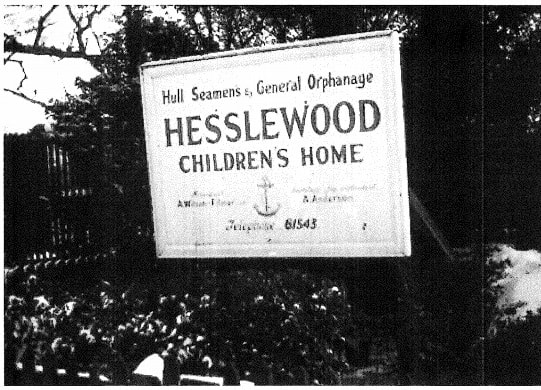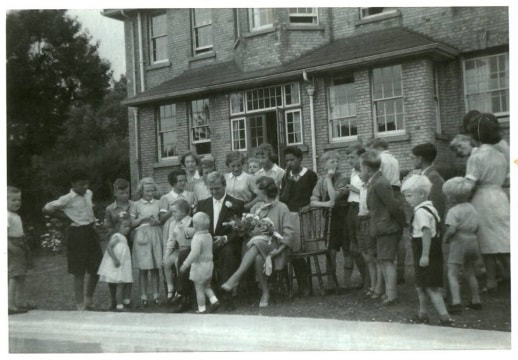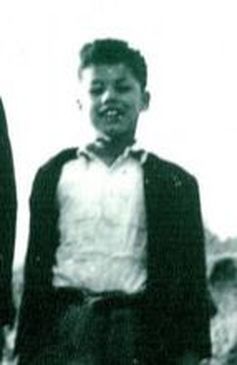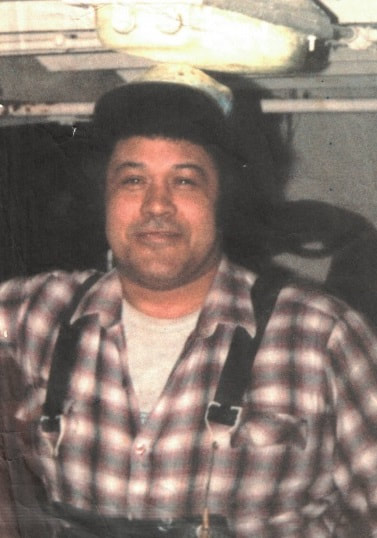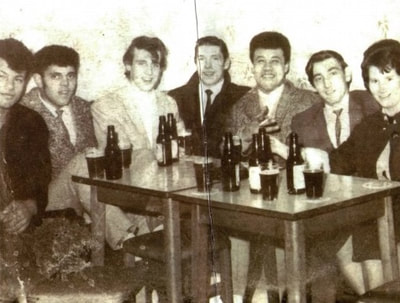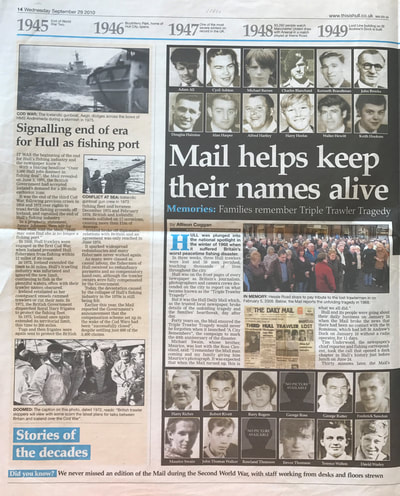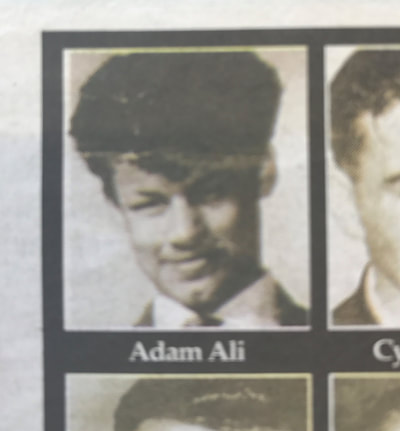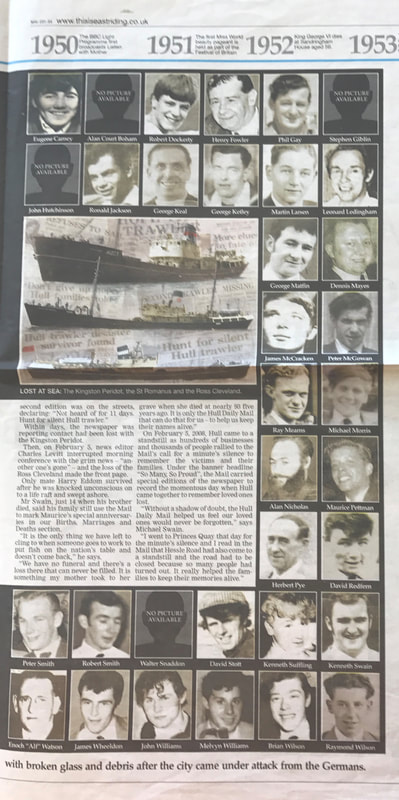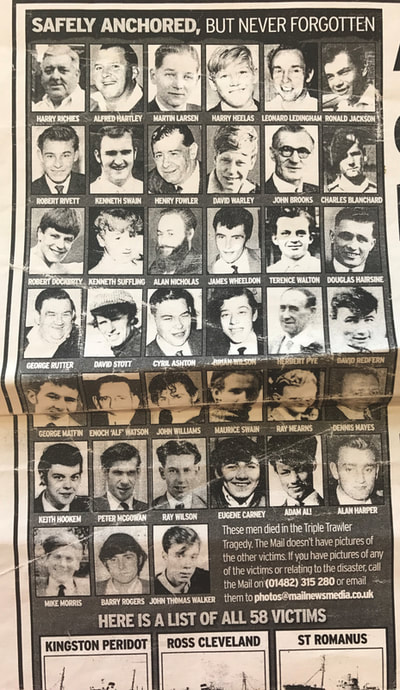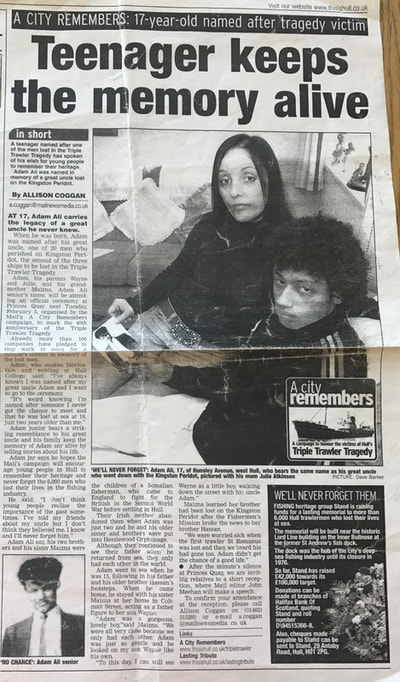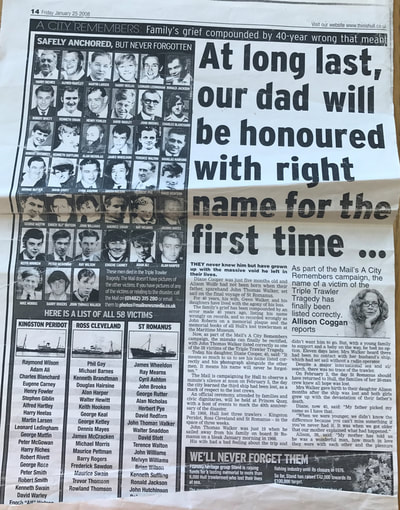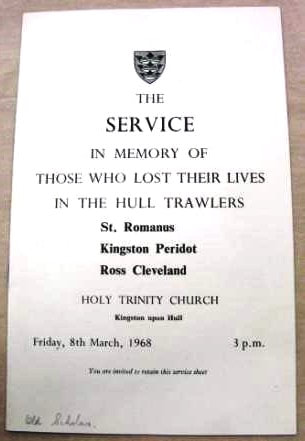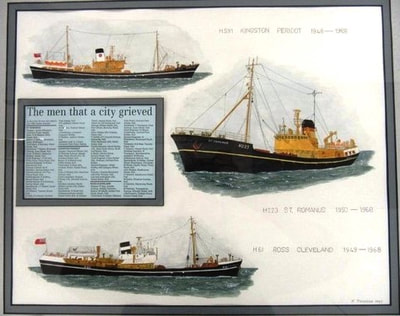Hussein Mohamed (also known as Abraham) Ali was born into the Habr Awal tribe in British Somaliland around 1901. Very little is known about Ali’s early life, however it is probable that he learned his craft as a seaman before arriving in Britain in the late 1930s.
By 1940, he had settled near Cable and Ensign Street in the London E1 district which was a popular residential area for men from British Somaliland. It was here, that he met Rose Ada Grisley. Shortly after beginning a romantic relationship, the pair left London and relocated to Hull. Why they chose this region is a mystery, however it is probable that Ali had visited the area previously as a sailor or he had heard that it was a thriving port city which offered profitable employment opportunities. Throughout World War II, Ali worked as a fireman and trimmer on board steamships as part of the Merchant Marine.
By 1940, he had settled near Cable and Ensign Street in the London E1 district which was a popular residential area for men from British Somaliland. It was here, that he met Rose Ada Grisley. Shortly after beginning a romantic relationship, the pair left London and relocated to Hull. Why they chose this region is a mystery, however it is probable that Ali had visited the area previously as a sailor or he had heard that it was a thriving port city which offered profitable employment opportunities. Throughout World War II, Ali worked as a fireman and trimmer on board steamships as part of the Merchant Marine.
Due to Ali’s profession, the couple likely settled within walking distance of the docks. In 1942, they had their first child Abraham Ali and two years later their second child Hassan Ali. In 1945, their daughter Amena S. Grisley was born. However, sadly she died a few months later. The following year, on 19 April 1946 Rose gave birth to their fourth child Maizna Elizabeth Grisley.
After the Second World War, Ali continued his career as a seaman operating out of the port of Hull. On Christmas Eve 1947, he left his home and took his position below deck on board the Ocean Volunteer. He arrived with the vessel in New York on 19 January 1948. As per the register of ‘Aliens employed on the vessel as members of crew,’ Ali was listed as a 44-year-old, fireman and trimmer with fifteen years’ experience at sea. Physically he was described as a ‘5-foot 8, British Negro from Somali weighing 154 pounds with no physical scarring or tattoos.’ The shipping records also suggest that Ali could not read.[1]
After the Second World War, Ali continued his career as a seaman operating out of the port of Hull. On Christmas Eve 1947, he left his home and took his position below deck on board the Ocean Volunteer. He arrived with the vessel in New York on 19 January 1948. As per the register of ‘Aliens employed on the vessel as members of crew,’ Ali was listed as a 44-year-old, fireman and trimmer with fifteen years’ experience at sea. Physically he was described as a ‘5-foot 8, British Negro from Somali weighing 154 pounds with no physical scarring or tattoos.’ The shipping records also suggest that Ali could not read.[1]
|
In 1948, Grisley and Ali married in Hull and around the same time had their fifth child Adam Ali. However, despite being together for several years, their marriage did not last long as the couple separated shortly before Rose had her sixth child in 1950, Kenneth P. It is probable that the pressures of an interracial marriage took its toll on the family with Rose leaving for London while Ali was away at sea. She went on to marry Emile Toussaint in 1962 and they had two children together in London.
The Ali/Grisley children remained in Hull with their father. However, as he was employed at sea they were sent to a nearby children’s home. By the late 1950s Ali lived at 25 Wilberforce Street and remained there until he died on 8 September 1961.[2] His possessions amounted to £682 and 3 shillings and were left to Deri Ali, a steel worker in London.[3] Sadly, the connection between the pair remains unknown, perhaps they were related or good friends. After their mother had relocated to London, Abraham, Hassan, Maizna and Adam were placed in Hesslewood House orphanage. The Ali children had a turbulent time in the care system and rebelled against their situation by repeatedly running away. As a result of what was perceived as ‘behavioural problems’ they were eventually separated and removed from Hesslewood House. The boys were admitted to a nearby borstal while ten-year-old Maizna was sent to Whitley Bay’s Northumberland Village Homes, a pupil referral unit. Today she feels very strongly that her behaviour and attitude towards authority was born out of the racism endured at Hesslewood. She remembers that the Ali children were often overlooked or treated unfairly because they were of African descent. Maizna also says that there were a couple of other Black children at the establishment during the eight years she spent at the orphanage. However, unfortunately she cannot remember their names.
|
After she was separated from her brothers, Maizna rebelled further and was eventually sent to a borstal in Kent which was followed by a short time in prison on the premise that she was a tearaway. Shortly, after her release, when Maizna was around 15 years old, she contacted her mother, Rose. However, after a visit to London, she quickly realised they were not going to have a mother-daughter relationship and the pair became estranged once again. Maizna returned to the care system and was fostered by a loving family at the age of 16 or 17. Sadly, this ended very abruptly as her foster mother died suddenly.
In the 1960s Maizna left the care system and settled in London where she had her first child Wayne. Meanwhile, her brothers remained in Hull. Abraham worked as a builder, and Hassan and Adam were employed in the fishing industry. Maizna eventually returned to Hull; however, as she had nowhere to live, after being refused council housing, she resorted to squatting. Although this created publicised friction with Hull City Council, she was eventually allocated the home she wanted. While in Hull, Maizna worked at the Birds Eye factory and various other establishments. She was exceptionally close to her brother Adam Ali who from the age of 15 had been employed on board fishing vessels. During his time onshore Adam stayed with Maizna at her home in Coltman Street. When he died at sea in January 1968, the family were devastated. Maizna remembers her brother fondly stating “Adam was a gorgeous, lovely boy…We were all very close because we only had each other. Adam was just so gentle and he looked after my son Wayne like his own. To this day, I can still see Wayne as a little boy, walking down the street with his uncle Adam.”[4]
In the subsequent years, Maizna met Joseph Lyle Peterkin and moved to Bolton. The couple had two children together, Darren and Simone. When their relationship ended Maizna spent some time with her brother Hassan, who had moved to Aberdeen, before she resettled in London and gained employment at a pencil factory in the early 1980s. In 1983, after obtaining her birth certificate Maizna realised that her last name was registered as Grisley, not Ali. She immediately applied for a change of name as she always believed that her maiden name was the same as the rest of her family.
In 1993, Maizna married Hammed Ojo in London. Their marriage lasted for five years before the couple parted in 1998. Maizna changed her name back to Ali and after staying in London for a short time returned to Hull with her children. As a mother, she admits that she was very strict because she was determined to give her children a better life.
In 1993, Maizna married Hammed Ojo in London. Their marriage lasted for five years before the couple parted in 1998. Maizna changed her name back to Ali and after staying in London for a short time returned to Hull with her children. As a mother, she admits that she was very strict because she was determined to give her children a better life.
|
Adam Ali
In January 1968, Adam Ali left his home at 292 Boulevard, Hull and took up his position as a Sparehand on board the Kingston Peridot. On the 10 January, the ship set sail on a routine fishing expedition. However, shortly after departure, the cook William Good fell from the companionway ladder badly injuring himself. Thus, the vessel docked at Reykjavik on 14 January where it remained until another cook, Harry Riches, was sent from the port of Glasgow to take his place. After the ship departed from Iceland it encountered extremely bad weather. On 26 January at 11.10 am, Skipper Ray Wilson contacted his counterpart on the Kingston Sardius and said that he was going to navigate the vessel away from the freezing temperatures. Wilson reportedly mentioned that he was concerned about ice build-up and wanted to reposition the vessel 120 miles east next to the Kingston Sardius. After this conversation, the Kingston Peridot was not seen or heard from again. Debris from the vessel was identified on 29 January indicating that it had sank and the crew had perished. Adam Ali was one of twenty hands who died on board the Kingston Peridot. He was only 19 years old and like most of the crew had the rest of his life ahead of him. |
|
The Triple Trawler Tragedy
The Kingston Peridot was one of three vessels from Hull that was lost within a three-week period in early 1968. The St Romanus which had embarked from St Andrew's Dock on the same day as the Kingston Peridot was the first to be reported missing on 24 January after no contact had been made with the vessel for 11 days. A few days later, the Hull Daily Mail informed readers that communication had been lost with the Kingston Peridot and on 5 February news reached the city that the Ross Cleveland had sunk. In total 58 men, including Adam Ali, died in what was termed, the ‘Triple Trawler Tragedy.’ The loss of these men significantly affected families all over the city including the Alis. For many they never forgot that fateful day when they learned their loved ones would not be returning home. Maizna remembers hearing about Adam’s death from her brother Hassan, who had been told the news by the Fisherman’s Mission. She said “We were worried sick when the first trawler St Romanus was lost and then we heard his had gone too. Adam didn’t get the chance of a good life.”[5] On 16th February 1968 Hull City played a football game against Motherwell in aid of the 'Trawler Disaster Fund' which was arranged to raise money for the families affected. A service for those that had perished in ‘Triple Trawler Tragedy’ was also held in Holy Trinity Church on 8 March 1968. |
'A City Remembers'
To mark the 40th Anniversary of the ‘Triple Trawler Tragedy,’ the Hull Daily Mail launched a campaign entitled “A City Remembers.” The newspaper urged local people to observe a minute's silence out of respect for the lost crewmen at noon on 5 February 2008. To gain support Adam Ali’s sister, Maizna’s grandson - who was named after his great uncle - featured in the newspaper urging the younger generation not to forget about this tragedy or the other 6,000 men who died during fishing expeditions. In response to the Hull Daily Mail’s campaign, more than 100 companies pledged to stop working at noon for the minute silence and the city ground to a halt to remember those lost.[6]
More recently, Ali and the other crewman who perished on ships which embarked from Hull between 1883 and 1975 have been honoured on the Last Trip memorial. The lost trawlermen have also been commemorated in a publication entitled Tribute to the fisherman by Danielle Rhodes and Dave Brown. You can see the newspaper coverage of these events and other images in the gallery below. Click each image to enlarge.
To mark the 40th Anniversary of the ‘Triple Trawler Tragedy,’ the Hull Daily Mail launched a campaign entitled “A City Remembers.” The newspaper urged local people to observe a minute's silence out of respect for the lost crewmen at noon on 5 February 2008. To gain support Adam Ali’s sister, Maizna’s grandson - who was named after his great uncle - featured in the newspaper urging the younger generation not to forget about this tragedy or the other 6,000 men who died during fishing expeditions. In response to the Hull Daily Mail’s campaign, more than 100 companies pledged to stop working at noon for the minute silence and the city ground to a halt to remember those lost.[6]
More recently, Ali and the other crewman who perished on ships which embarked from Hull between 1883 and 1975 have been honoured on the Last Trip memorial. The lost trawlermen have also been commemorated in a publication entitled Tribute to the fisherman by Danielle Rhodes and Dave Brown. You can see the newspaper coverage of these events and other images in the gallery below. Click each image to enlarge.
Footnotes
[1] New York, Passenger Lists- 1820-1957: T715: 7536, p. 58
[2] Ancestry.com. England & Wales, National Probate Calendar (Index of Wills and Administrations), 1858-1966, 1973-1995 [database on-line]. Provo, UT, USA: Ancestry.com Operations, Inc., 2010.
[3] Ibid.
[4] The Hull Daily Mail, 29 January 2008.
[5] The Hull Daily Mail, 29 January 2008.
[6] The Hull Daily Mail, 29 January 2008.
[1] New York, Passenger Lists- 1820-1957: T715: 7536, p. 58
[2] Ancestry.com. England & Wales, National Probate Calendar (Index of Wills and Administrations), 1858-1966, 1973-1995 [database on-line]. Provo, UT, USA: Ancestry.com Operations, Inc., 2010.
[3] Ibid.
[4] The Hull Daily Mail, 29 January 2008.
[5] The Hull Daily Mail, 29 January 2008.
[6] The Hull Daily Mail, 29 January 2008.
